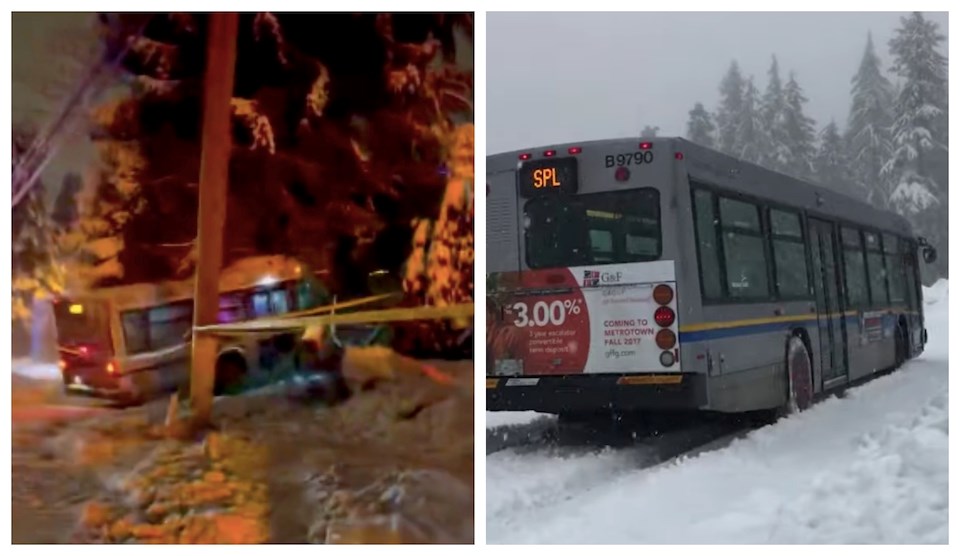TransLink has come under fire again this winter season following a massive snowstorm that caused commuter mayhem on its transportation network.
Scores of Metro Vancouverites expressed outrage, frustration, and shock after many of them were stranded in various places across the region waiting for public transportation on Tuesday (Dec. 20).
Although TransLink warned customers of delays, many of them said they waited for an exceptionally long time in the cold, with some of them on buses that were sliding across the road or unable to make it up some inclines.
In one video, a bus appears to have slid off the road and crashed into some trees outside of a residential property.
Lovely holiday present for this family from @TransLink ☃️🤓#bcstorm @KamilKaramali pic.twitter.com/U98vkbduXJ
— Daniel Stoyak (@dstoyak) December 20, 2022
Many people instead lamented the poor road conditions, blaming the city for not plowing more of the major roads.
TransLink buses navigate challenging snowy Vancouver weather conditions
Translink doesn't change its tires for the frosty season because it uses winter-rated tires with the 3-Peak Mountain Snowflake symbol year-round, the company told Vancouver is Awesome in an emailed statement.
The wheels have been tested in winter weather, are certified to provide quality traction in the snow, and are recommended by Michelin.
TransLink notes that car and bus tires are "very different" and no major transit agency in Canada changes the tires on all their buses for the winter months.
"To ensure these tires are performing well, we also constantly check our fleet’s tread depth and change any tire that gets below 9 millimeters of tread."
To provide extra traction on buses, tire socks are used for extra traction in areas with hills and plentiful snowfall. But TransLink says that they can’t be used on all of its routes.
"Buses go through constantly changing road conditions on each route, and TransLink works closely with municipalities to recommend which roads most need salting and plowing whenever there is inclement weather in Metro Vancouver," according to the company.
Both Transport Canada and the Government of British Columbia use the 3-Peak Mountain Snowflake symbol to identify which tires are suitable for winter conditions.



